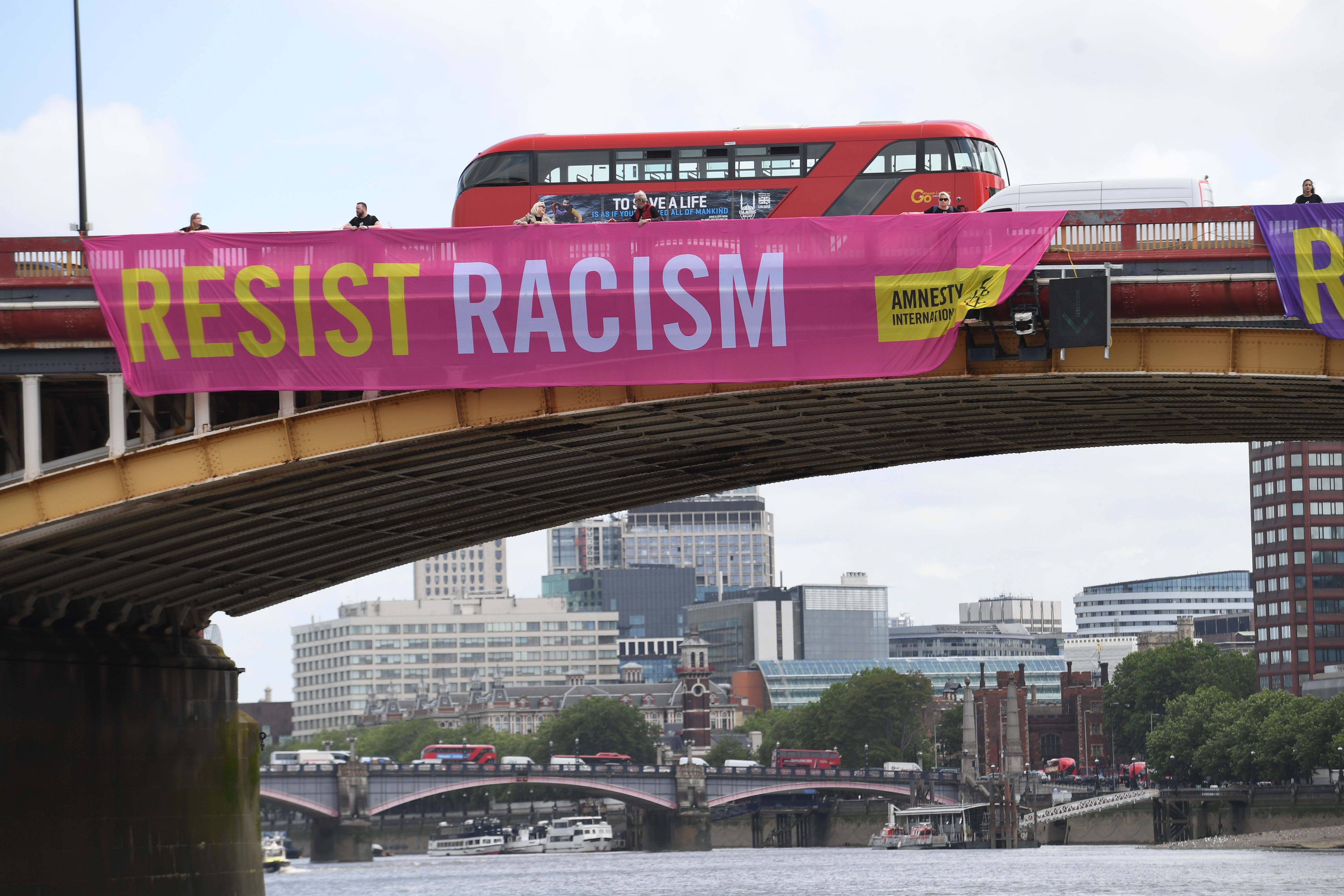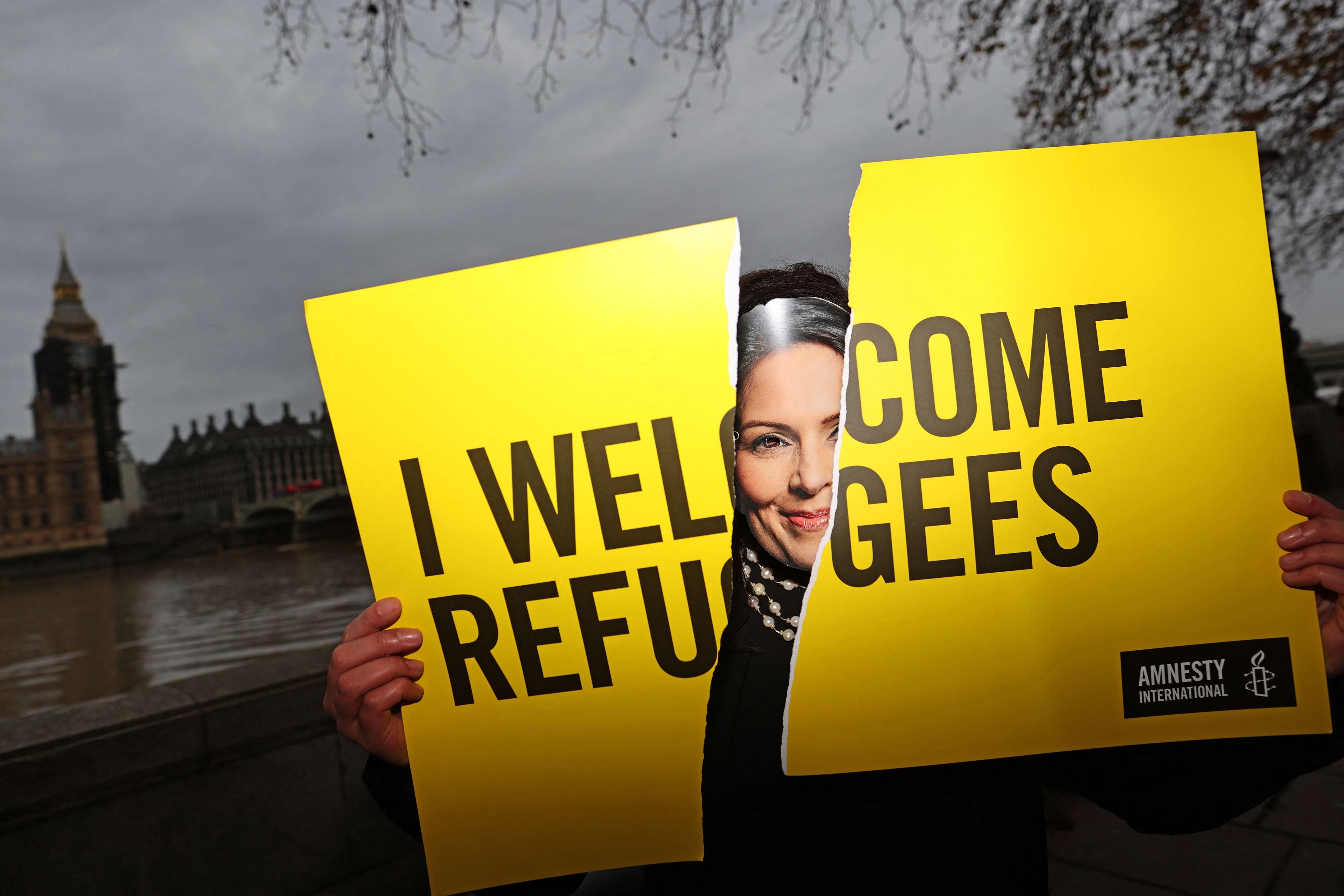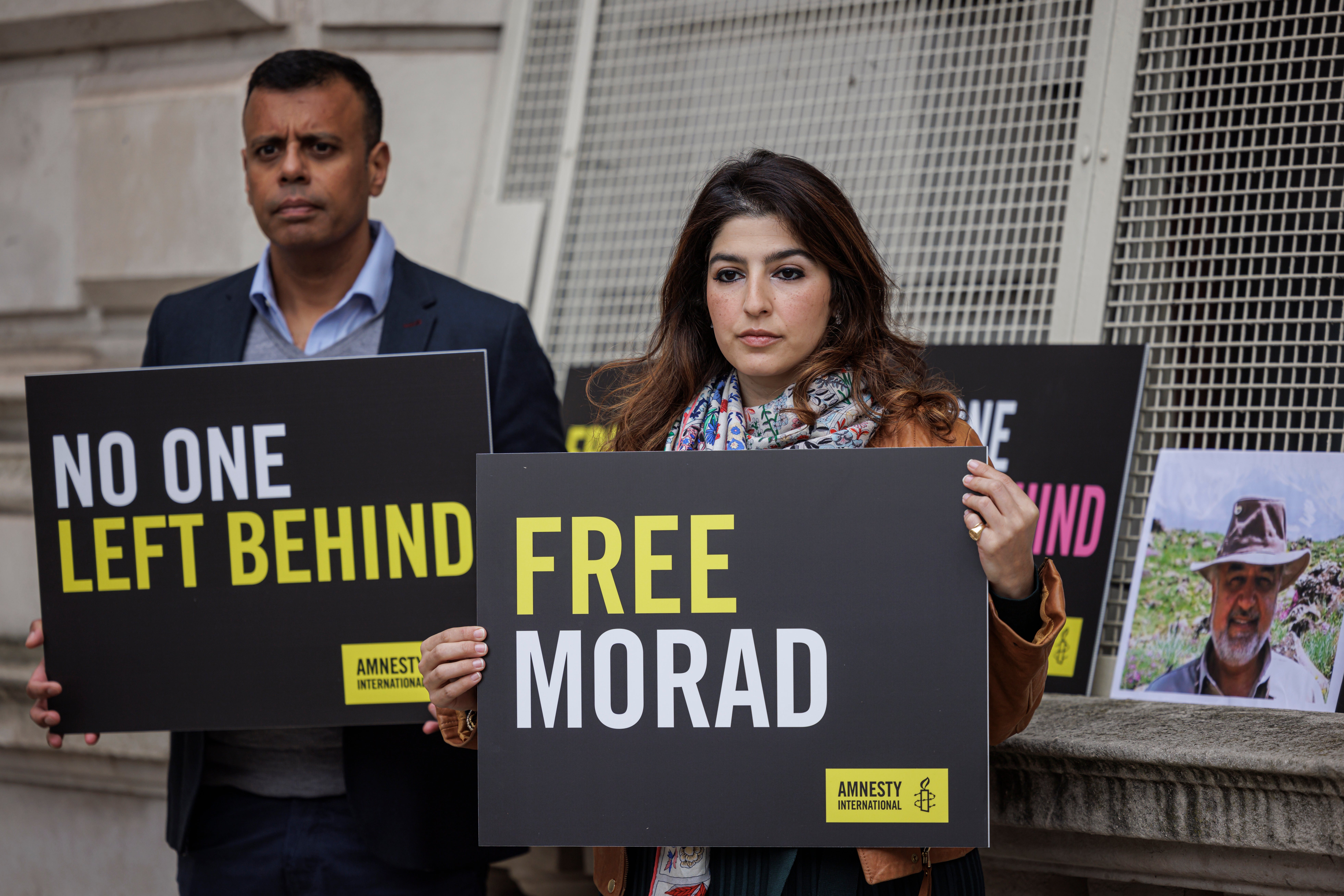Amnesty International UK is ‘colonialist and institutionally racist’, damning inquiry concludes
Exclusive: An independent review found that racial discrimination, bullying and white savourism is endemic within the award-winning human rights charity

Your support helps us to tell the story
From reproductive rights to climate change to Big Tech, The Independent is on the ground when the story is developing. Whether it's investigating the financials of Elon Musk's pro-Trump PAC or producing our latest documentary, 'The A Word', which shines a light on the American women fighting for reproductive rights, we know how important it is to parse out the facts from the messaging.
At such a critical moment in US history, we need reporters on the ground. Your donation allows us to keep sending journalists to speak to both sides of the story.
The Independent is trusted by Americans across the entire political spectrum. And unlike many other quality news outlets, we choose not to lock Americans out of our reporting and analysis with paywalls. We believe quality journalism should be available to everyone, paid for by those who can afford it.
Your support makes all the difference.Amnesty International UK is “institutionally racist”, “colonialist” and faces bullying problems within its own ranks, a damning inquiry has concluded.
Initial findings of Global HPO’s independent inquiry into the charity were published in April but now the scale of the organisation’s issues with race have been laid bare in their final report.
Released to Amnesty staff members on Thursday, the 106-page document explains that equality, inclusion and anti-racism are “not embedded into the DNA” of the organisation.
“White saviour”, “colonialist”, “middle class” and “privileged” were among the words most used during the testimony and focus groups to discuss Amnesty.
Diversity was also found to be a major problem within the charity itself, with white applicants more likely to be appointed to roles within the charity than all other groups – and black people least likely to be given a job.
Examples of racist incidents that left black and Asian staff uncomfortable include:
- Being regularly mistaken for other colleagues with similar skin tone
- Negative comments about fasting during Ramadan
- Treating black skin, hair and appearance as matters of fascination and touching hair without consent
- Rude comments about minority celebrities, politicians or events

“Our view is that ‘white saviour, middle class and privileged’ is a perception that forms an important part of the AIUK narrative about its history and legacy,” the inquiry found.
“A perception that has not been addressed and as such manifests in the negative cultural paradigm of exclusion and racism at AIUK. There is a need for the impact of this legacy to be acknowledged and addressed as part of the transition to becoming anti-racist.”
Recommendations for improvement include refraining from collating diversity data into one homogeneous black, Asian and minority ethnic (Bame) group and providing training to improve equality monitoring.
“Dysfunctional internal activism” – in which staff view anti-racism and fair treatment as “unwinnable” endeavours – also needs to be addressed, the report adds.
Particular attention should paid to the employment and retention of black African and black Caribbean staff at AIUK , the inquiry ruled, as these groups fare the worst within the charity.

Sacha Deshmukh, Amnesty International UK’s chief executive, said: “It is critical in the change that we need to make at Amnesty UK that we acknowledge that this report makes abundantly clear the scale of the transformation we must make to change lots about Amnesty UK as a place to work.
“GHPO have helped us to identify where we must make changes and we will not shy away from this work, especially as it is clear it is long overdue.
“I am glad that the inquiry team have recognised that some improvements have started here in the last year, but that doesn’t in any way diminish the seriousness of the findings nor should it make us at all complacent about the task ahead of us.
“But I do believe that with a transformation we can make Amnesty UK an example of a cause-driven organisation with an excellent working environment and culture for all colleagues.
“That should be our goal, and it is our duty not just to our colleagues but to our hundreds of thousands of supporters that we deliver it.”
The independent inquiry conducted by Global HPO was commissioned by a joint group drawn from different parts of Amnesty UK, including the Section Board, Amnesty activists, the staff trade union shop, management and former staff, in October 2021.
Join our commenting forum
Join thought-provoking conversations, follow other Independent readers and see their replies
Comments